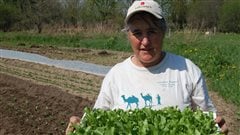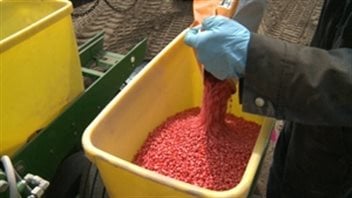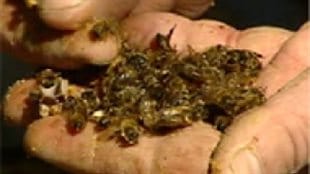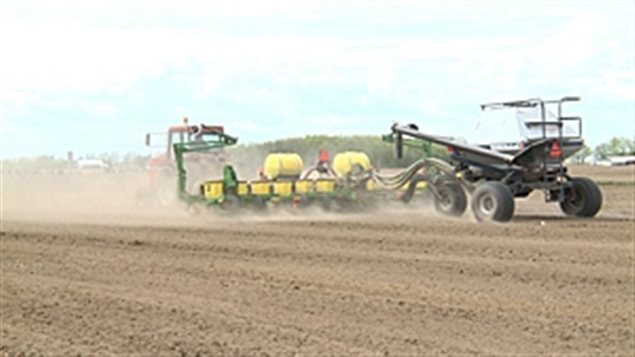On December 18th an important discussion meeting was held between government ministries and various stakeholders to discuss the Ontario government’s plan to restrict use of the contentious insecticides known as neonicotinoids which have been linked to mass bee die-offs.
Ann Slater is a small-hold farmer with about 10 acres of mixed vegetables and a flock of sheep. She is also vice-president of policy for the National Farmers Union, one of the groups invited to the meeting.
Listen
The meeting was organized by Ontario’s Ministry of Agriculture and Ministry of the Environment in response to very strong positions against neonicotinoid use on farm crops.
They say there is clear evidence that “neonic” use has a major role in the mass die-off of bees.
That position has put them at odds with the Grain Farmers of Ontario, and the chemical industry.
The NFU position on the other hand is closer to that of the beekeepers association and supports a closer look at the use of neonics, and a workable limitation on their current widespread use.

However, even as the meeting started, several of the invited representatives stood up, gave a short spiel on their dissatisfaction with the government’s proposed limitations on neonicotinoid use, and then walked out.
Among those leaving were the Grain Farmer’s representative, and those of the seed manufacturers and of chemical companies who Slater says seemed to object to not having been able to be included early in the policy development process.
Some said it was the public driving agricultural policy but Slater, on behalf of the NFU says it is the public and urbanites who buy the farmer’s products so if that was the case farmers should be listening.
The meeting continued with other stakeholders continuing discussions which will help Ontario formulate a policy calling for limitations of neonics in corn and soy crops. After writing the policy, further consultations will take place to finalize the plan which the government hopes to have in place in mid 2015.

After a four year analysis, a panel of 29 independent scientists from around the world, operating as the Task Force on Systemic Pesticides, stated that pesticides linked to bee deaths must be banned. The panel reviewed the findings of more than 800 peer-reviewed independent and industry-led studies. They found that the pesticides neonicotinoids and fipronilare are seriously harming the environment, with consequences similar to those posed by DDT in the 1960s. REPORT
Ontario Government on Neonics and Pollinators







For reasons beyond our control, and for an undetermined period of time, our comment section is now closed. However, our social networks remain open to your contributions.